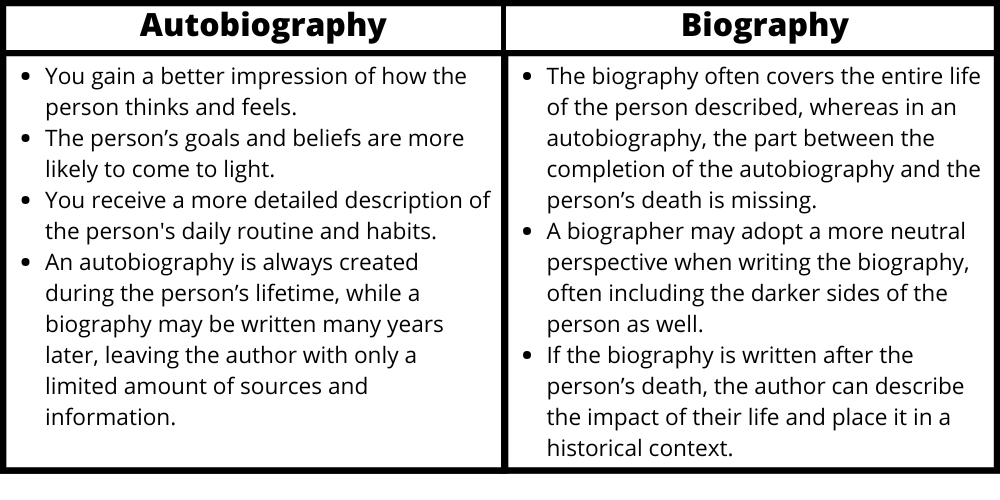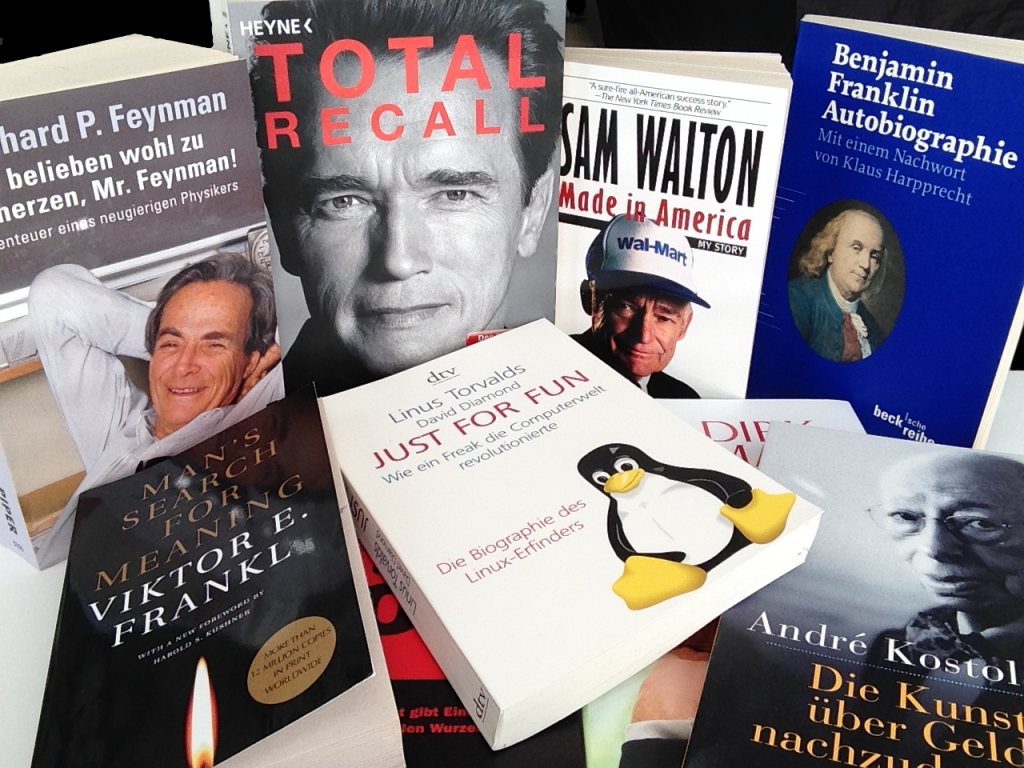How To Read An (Auto-)Biography
By reading biographies, you can learn a wealth of information about a person that you would not find elsewhere. Media coverage of successful individuals, for example, tends to focus only on their achievements and highlights. A biography, on the other hand, also covers the setbacks and obstacles encountered along the path to success, as well as other details likely to be explored only within the biography itself, such as:
- Childhood
- Relationships with others
- Goals and visions
- Habits
- Ways of thinking
- Beliefs
- Doubts and convictions
- Principles and values
- Daily routines
- Key experiences and life events
- Things that didn’t work out
These insights help you gain a well-rounded understanding of the person and offer aspects you may find useful for your own life.
Before reading an (auto)biography, it’s helpful to gather some preliminary information about the person and take a look at their general life story. To form a first impression of them, you could, for instance, read an article about them or watch an interview. This preparatory step can enhance your reading by making it easier to visualize and contextualize the content. It can also highlight which parts of the person’s life are missing from the biography and may have been intentionally left out. When reading a biography, you should also investigate the author’s background and their relationship to the person described. You might consider whether the author lived in the same time period and if they knew him or her personally. This helps you assess the author’s neutrality and objectivity in creating the biography and recognize any influence the author’s personal opinion may have had on the writing.
When reading an autobiography, pay attention to the author’s age and the stage of life they were in when they wrote it. Additionally, research what happened in their life after completing the autobiography.

When reading a biography, pay close attention to key character traits, goals, and habits, and make note of them. Write down the most significant experiences and decisions as well, and briefly outline the positive or negative impacts of these experiences and decisions.
After reading the biography, summarize both the person’s life story and character. For the life story, list the major events chronologically and describe the effects and connections of these events. In describing the character, outline the person’s values, habits, traits, and particular abilities. Also note which of these characteristics were crucial to the person’s successes or failures.
Next, consider which of the person’s positive habits, beliefs, and values you would like to adopt. If you wish to achieve similar outcomes, try to develop the skills that helped make the person successful in their field. Create an action plan for this and apply it. You can use Franklin’s virtue plan as a guide to help you incorporate these values and habits into your life.

It can also be beneficial to read biographies of unsuccessful people to learn from their mistakes and experiences. Pay particular attention to negative beliefs and habits as well as key decisions that were made incorrectly. Often, the absence of clear goals and a poor approach to setbacks contribute to a lack of success.
When you read and analyze multiple biographies in this way, you will start to see patterns in what makes a person successful or unsuccessful. You can then apply these insights to your own life.
Below are some questions you might answer and reflect on when reading biographies:
- How does the person make decisions? Does this approach generally lead to good or poor decisions?
- How does the person handle success?
- How does the person deal with setbacks or failures?
- What goals does the person have? How were these goals defined, and were they achieved?
- How does the person interact with others?
- What does a typical day in this person’s life look like? Are there any morning or evening routines?
- What habits does the person have?
- What beliefs does the person hold?
- What books has the person read?
- Who does the person associate with, and how do these people influence them?
- What values are particularly important to the person?
- Does the person follow a (life) philosophy or adhere to specific rules or principles?
- What events or experiences have significantly shaped the person?
- What tools does the person use to increase productivity or quality of life?
- What kind of environment does the person live in?
- How does the person manage distractions?



